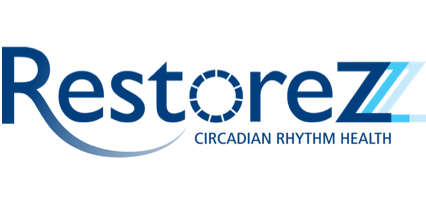
Do I Have a Circadian Rhythm Sleep Disorder?
There's more to a restful night's sleep than clocking nine hours between the sheets. While quantity is definitely important, the quality of sleep and how well our bodies cycle through the different stages of sleep are just as valuable (if not more so). And while many of us understand the effects that caffeine, blue light screens, loud noises, and stress have on our sleep quality, many more do not understand how our bodies’ natural cycles also affect our sleep - and vice versa. To have truly restful, restorative sleep, our bodies need to successfully complete their cycles — and to align with our own circadian rhythms.What is circadian rhythm disruption?
Thecircadian rhythm is a (usually 24-hour) cycle that affects physical, behavioral, and mental processes within our bodies. Many people associate the human circadian rhythm with light and dark as people are generally awake during the day and asleep at night, but circadian rhythms involve more than that. Your body completes a natural cycle approximately every 24 hours. This cycle affects every system in your body; things like nutrient absorption, energy storage and use, metabolism, mood and mental capacity, and much more. Your cells also follow this circadian rhythm, working to repair and maintain themselves during the natural progression of your 24-hour cycle. Sleep is a critical component of this 24-hour cycle. Because circadian rhythm impacts the ability to sleep, it’s important to understand when our rhythms are out of sync. It’s also important to know what to do about it.What is a circadian rhythm sleep disorder?
When your body’s circadian rhythm is out of sync, the normal function becomes disrupted. Unlike other sleep disorders (called dyssomnias), circadian rhythm sleep disorders arecaused by an imbalance in the circadian rhythm. This could be because of an internal condition, such as head trauma, disease, or conditions like Alzheimer's, or by external influences like work schedules, caffeine intake, and much more. You may be familiar with “externally related” circadian rhythm sleep disorders, such as Time Zone Change syndrome (jet lag) and Shift Work Sleep Disorder (a sleep disorder created when a person works nights or extended shifts). These affect our bodies’ natural rhythms, as we can't sleep or eat when our body tells us.Circadian rhythm sleep disorder symptoms
Withcircadian rhythm sleep disorders, you may notice:- Difficulty falling asleep
- Difficulty staying asleep
- Waking up feeling tired and unrested
- Fatigue throughout your waking hours
- Difficulty concentrating
- Mental “fog” and difficulty thinking clearly
- Headaches
- Clumsiness or lack of physical coordination
- Depression or mood changes


